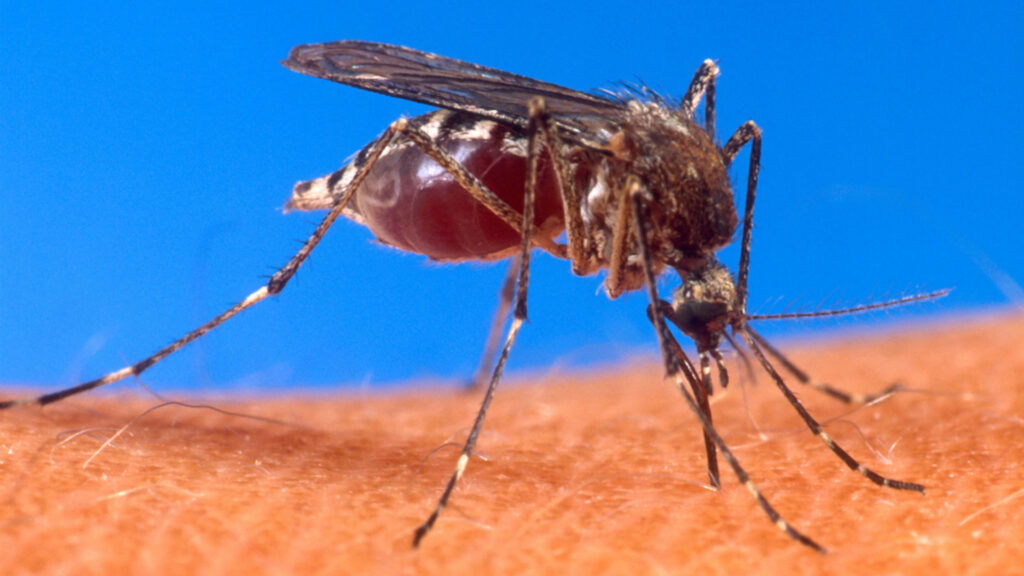By Robert C. Jones Jr., University of Miami
Temperature and humidity records that have stood for decades are falling like dominoes, and day after day, scores of cities across the world continue to issue heat advisories, forcing many people to flock to urban cooling centers for relief from the scorching weather.

But in the muggy, humid conditions that have forced many to stay inside, one creature that has been around since the Jurassic period is on the move: the mosquito.
As global temperatures continue to rise, the areas in which the pesky insects thrive will likely expand, putting more communities at risk for vector-borne diseases such as malaria, dengue fever, chikungunya and West Nile virus, according to a University of Miami public health scientist.
“Unfortunately, we’re going to see a ramping up of this — mosquitoes expanding their geographical region as the planet continues to warm,” said John Beier, professor and director of the Division of Environment and Public Health in the Miller School of Medicine’s Department of Public Health Sciences. “Mosquitoes can’t regulate their body temperature; it’s really the same as their surroundings. And they love warm weather and high humidity, which helps them propagate and spread faster.”
With Florida now under a statewide health advisory for malaria after six cases of the vector-borne illness have been reported in Sarasota County since May, renewed attention has been focused on mosquitoes.
Beier, whose research focuses on the ecology and control of vector-borne diseases, answers questions about the incredibly resilient mosquito and the locally transmitted cases of malaria in Southwest Florida.
How common is malaria in the United States, and how concerned should we be about widespread transmission after the six reported cases in Southwest Florida?
About 2,000 cases of malaria are recorded in the United States each year, and nearly all of them are in people who acquired the disease abroad. The six cases in Florida, as well as one in Texas, are locally transmitted infections. What that means is that someone had malaria in these two sites. Local mosquitoes bit those already infected people, the insects became infected and then they bit other people. These locally acquired cases shouldn’t be too much to be concerned about. Most mosquitoes don’t usually travel more than a mile from their breeding ground.
How many species of mosquitoes are there, and what species transmits malaria?
Throughout the world, there are more than 3,000 species of mosquitoes. Here in Miami, we have about 50 species, but only about half a dozen are important vectors. Infective female Anopheles mosquitoes transmit malaria. An infected Aedes species mosquito (Aedes aegypti and Aedes albopictus) can transmit the Zika, chikungunya and yellow fever viruses.
An estimated 619,000 malaria deaths occurred in 2021, according to the World Health Organization. Where is malaria most common, and what are its symptoms?
Malaria is mostly in poor, tropical and subtropical areas of the world. Infected people will experience a fever and flu-like symptoms like chills, a headache, muscle aches and tiredness. Nausea, vomiting and diarrhea can also occur.
What do mosquitoes need to breed?
They need standing water to complete their life cycle. They can lay their eggs in as little as a bottle cap full of water. And they can go from egg to biting adult in as little as five days. Only female mosquitoes bite people and animals to get the blood meal they need to produce eggs. Male mosquitoes feed on natural sugar from flowers.
How long do mosquitoes live?
About 10 to 15 days, if they’re lucky. Their daily survival rate is about 90%. So, every day about 10% of the population will die. The warmer temperatures and higher humidity are reasons for concern because that can increase their survival time, which makes a difference because older mosquitoes are more likely to transmit viruses and parasite.
What mosquito-related research are you currently conducting?
We’re still involved in a vector-control project in Mali, West Africa. The study is through the Innovative Vector Control Consortium, and it involves attractive-toxic sugar baits. We’re exploiting the need for both male and female mosquitoes to take vital sugar meals. We attract the mosquitoes to sugar feed from a source that contains an insecticide that kills them.
This piece was originally published at https://news.miami.edu/stories/2023/07/warming-climate-will-expand-mosquitos-realm.html
Sign up for The Invading Sea newsletter by visiting here.



